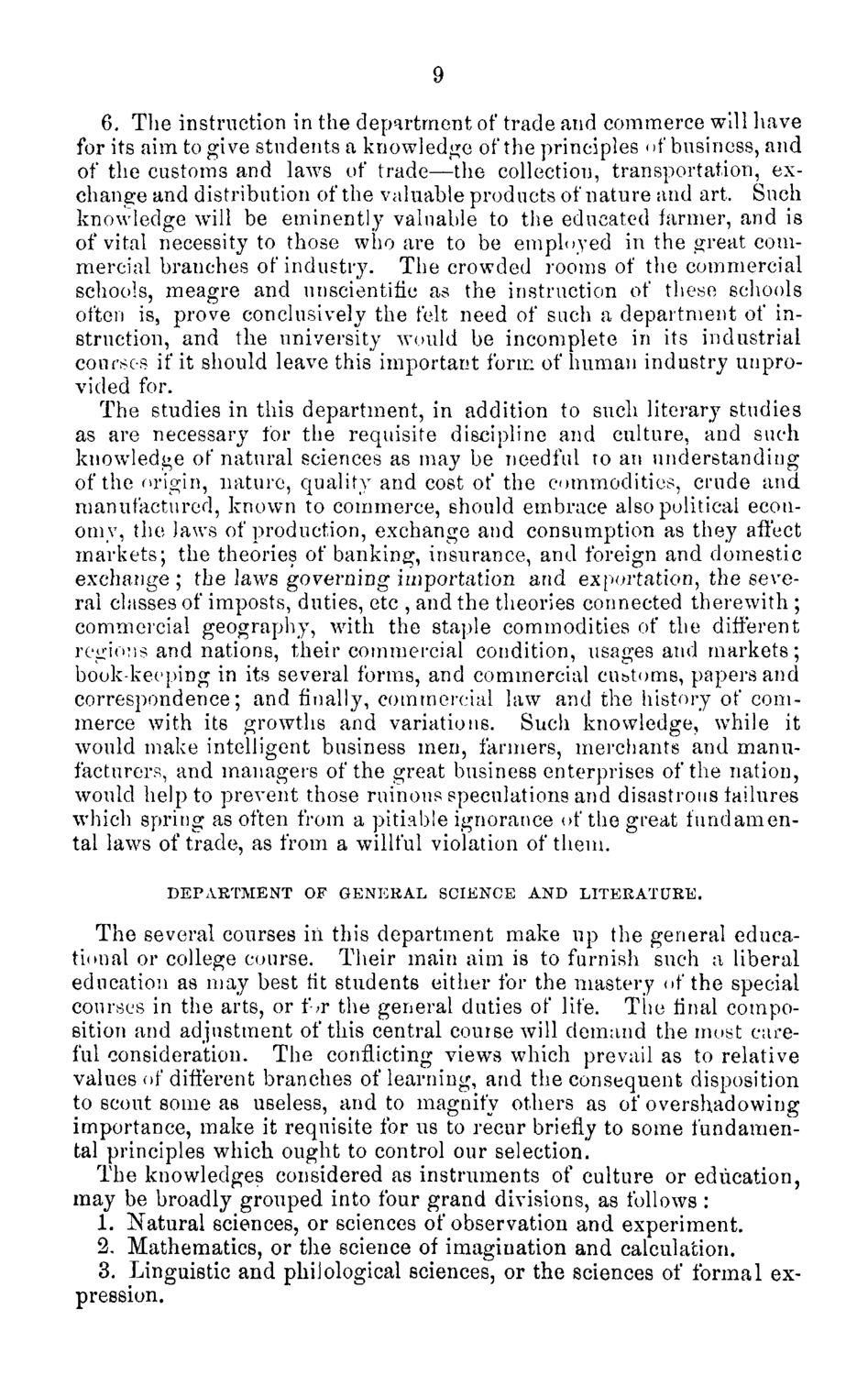| |
| |
Caption: Course Catalog - 1867
This is a reduced-resolution page image for fast online browsing.

EXTRACTED TEXT FROM PAGE:
6. The instruction in the department of trade and commerce will have for its aim to give students a knowledge of the principles of business, and of the customs and laws of trade—the collection, transportation, exchange and distribution of the valuable products of nature and art. Such knowledge will be eminently valuable to the educated farmer, and is of vital necessity to those who are to be employed in the great commercial branches of industry. The crowded rooms of the commercial schools, meagre and unscientific as the instruction of these schools often is, prove conclusively the felt need of such a department of instruction, and the university would be incomplete in its industrial courses if it should leave this important form of human industry unprovided for. The studies in this department, in addition to such literary studies as are necessary for the requisite discipline and culture, and such knowledge of natural sciences as may be needful to an understanding of the origin, nature, quality and cost of the commodities, crude and manufactured, known to commerce, should embrace also political ecouomv, the Jaws of production, exchange and consumption as they affect markets; the theories of banking, insurance, and foreign and domestic exchange ; the laws governing importation and exportation, the several classes of imposts, duties, etc , and the theories connected therewith ; commercial geography, with the staple commodities of the different regions and nations, their commercial condition, usages and markets; book-keeping in its several forms, and commercial cn&toms, papers and correspondence; and finally, commercial law and the history of commerce with its growths and variations. Such knowledge, while it would make intelligent business men, farmers, merchants and manufacturers, and managers of the great business enterprises of the nation, would help to prevent those ruinous speculations and disastrous failures which spring as often from a pitiable ignorance of the great fundamental laws of trade, as from a willful violation of them. DEPARTMENT OF GENERAL SCIENCE AND LITERATURE. The several courses iii this department make up the general educational or college course. Their main aim is to furnish such a liberal education as may best fit students either for the mastery of the special courses in the arts, or f >r the general duties of life. The final composition and adjustment of this central course will demand the most careful consideration. The conflicting views which prevail as to relative values of different branches of learning, and the consequent disposition to scout some as useless, and to magnify others as of overshadowing importance, make it requisite for us to recur briefly to some fundamental principles which ought to control our selection. The knowledges considered as instruments of culture or education, may be broadly grouped into four grand divisions, as follows : 1. Natural sciences, or sciences of observation and experiment. 2. Mathematics, or the science of imagination and calculation. 3. Linguistic and philological sciences, or the sciences of formal expression.
| |